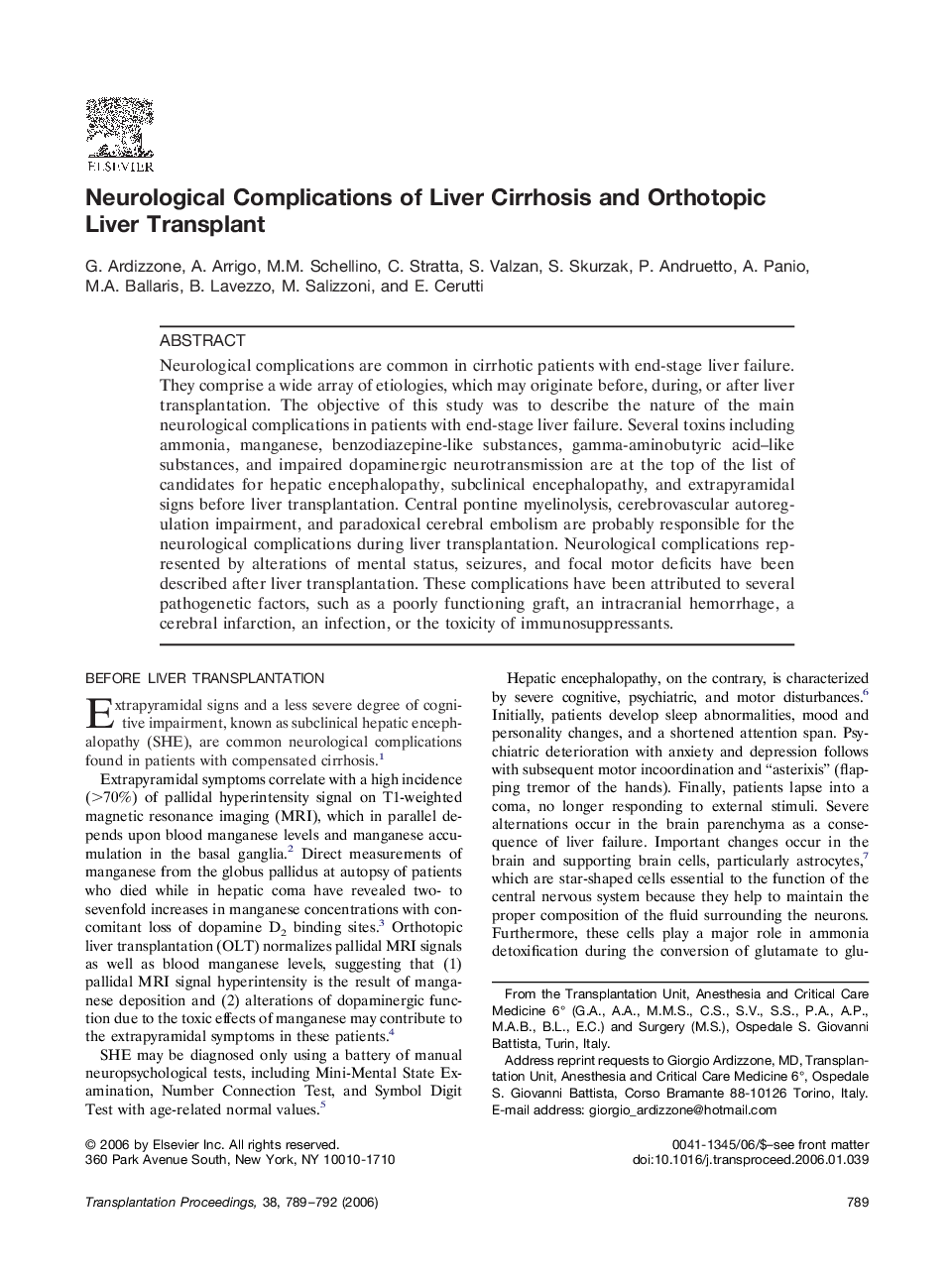| Article ID | Journal | Published Year | Pages | File Type |
|---|---|---|---|---|
| 4263012 | Transplantation Proceedings | 2006 | 4 Pages |
Neurological complications are common in cirrhotic patients with end-stage liver failure. They comprise a wide array of etiologies, which may originate before, during, or after liver transplantation. The objective of this study was to describe the nature of the main neurological complications in patients with end-stage liver failure. Several toxins including ammonia, manganese, benzodiazepine-like substances, gamma-aminobutyric acid–like substances, and impaired dopaminergic neurotransmission are at the top of the list of candidates for hepatic encephalopathy, subclinical encephalopathy, and extrapyramidal signs before liver transplantation. Central pontine myelinolysis, cerebrovascular autoregulation impairment, and paradoxical cerebral embolism are probably responsible for the neurological complications during liver transplantation. Neurological complications represented by alterations of mental status, seizures, and focal motor deficits have been described after liver transplantation. These complications have been attributed to several pathogenetic factors, such as a poorly functioning graft, an intracranial hemorrhage, a cerebral infarction, an infection, or the toxicity of immunosuppressants.
